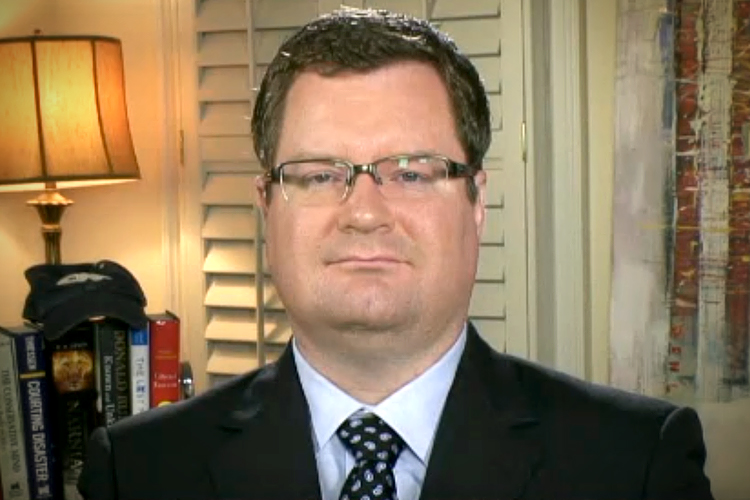To a still unappreciated extent, the questions at the heart of Sebelius v. Hobby Lobby, now before the Supreme Court, are about more than contraception, per se, or the particular religious beliefs of Hobby Lobby’s owners. They have to do with competition between the rights of employers and workers, or perhaps between the rights of different employers.
In the Hobby Lobby case, employers are claiming that their religious liberties trump their employees’ newly established right to contraceptive coverage. But a similar claim could come from any company with respect to any number of laws and regulations. And to prevail, they’d need the Supreme Court to rule that an incorporated business — like Hobby Lobby — is a religious creature in its own right. Hobby Lobby, the corporate entity, needs the court to provide it either a First Amendment right to free practice of religion, or the right to assert claims under the Religious Freedom Restoration Act. In some way its owners’ religious identity needs to be transferred to the corporation.
And in either case we’re wandering into new territory. After enduring for all these years without such a right, suddenly for-profit corporations say they’re being trammeled without it. Obamacare may have forced the issue, but this isn’t so different from the rights conservatives were seeking in Arizona and elsewhere, in anticipation of an ever rising tide of LGBT rights.
So on Tuesday I asked in earnest,
[embedtweet id=448559099131990016]
The responses were largely not edifying. That’s partly on me. My question was somewhat vague, and to people who hadn’t read a couple of my recent articles or been following the legal arguments in Hobby Lobby closely, it probably looked like I was asking, “Why would anyone want to run a religious business?” Obviously there are thousands and thousands of businesses that serve religious people, market themselves as religious, encourage religious ethos and so forth. That doesn’t befuddle me in the slightest.
What I’m really asking is, “How could the new right Hobby Lobby et al. are seeking be used other than to trump the rights of third parties?” or “How were religious entrepreneurs harmed for all the years they lacked a right like this?”
I still don’t have a good answer.
Red State’s Erick Erickson gave it his best shot. But he inadvertently confirmed the premise of my question.
“[N]o one is arguing religious entrepreneurs were harmed ‘all the years they lacked’ the right to operate as religious for the very reason that up until now they’ve been left alone,” he said. “It is only now, but with compulsion to bake cakes for gay weddings and provide funding to subsidize abortions, etc. that we are having this fight. Christians assumed they had the right, the state left them alone, and everyone went about their business.”
I think there’s quite a bit of case law out there disproving Erickson’s assertion that religious business owners “have been left alone” up until Barack Obama became president. And it’s worth noting that before Obama came along, Hobby Lobby was voluntarily providing coverage for the forms of contraception that they (and Erickson) now erroneously describe as abortifacient.
But notice, he acknowledges that the reason Hobby Lobby et al. are asserting new rights is to trump others they don’t agree with. They only need the new rights in order to deny service to customers they don’t like, and protections to employees (current or prospective) when they disagree with them.
In every other way, Hobby Lobby’s owners, and other religious business owners, are free to run their corporations as if they were quasi-religious institutions. Erickson adds, “I can assure Brian Beutler that Christians do not wish to operate their businesses as a burden to others, but as a blessing. Hobby Lobby is a great example of that. The corporation pays its workers well above minimum wage, it closes earlier than its competitors each day, it closes on Sunday, and it gives solid benefits — medical, dental, and retirement.”
All praise to Hobby Lobby for adopting these practices, but notice they required no special rights to do so. By contrast, if for whatever reason their religious beliefs ran into conflict with minimum wage laws in the other direction, I’d argue that the law trumps their beliefs, and so, I imagine, would the vast majority of Americans (labor market forces notwithstanding).
One of my social media correspondents said the answer to my question could be found in the dissenting to this 1988 9th Circuit opinion. The whole ruling is worth a read, but the facts of the case are suddenly, eerily, more pertinent than the opinions, because the question at hand was whether the religious owners of a closely held corporation could compel employees (existing ones, at that) to attend religious services at work, during work hours.
Right now, the country’s not in the midst of a culture war over the minimum wage, or the propriety of compelling workers to attend worship. It’s in the midst of culture wars over reproductive and LGBT rights, in secular arenas. But rather than accept the public’s rendering (which the religious imposed on same-sex couples for years and years, and still do where they can) conservatives are seeking generalized waivers from their obligations under the social contract.
That’s precisely what this case is about. Abridgment of third-party rights. Because there are no selfless purposes to which business owners aspire that the lack of a corporate right to free practice of religion deprives them of.

